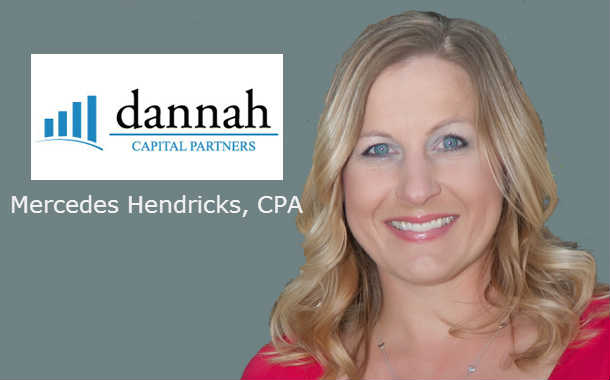By Mercedes Hendricks, CPA & Partner, Dannah Capital Partners
If you are looking to sell your dealership, you are likely running through a variety of short and long-term strategies to increase your organizational value in preparation for sale. That small word “value” means everything when it comes down to closing the deal and getting every last dollar you deserve.
There is a highly effective long-term method for increasing your value that is often overlooked today – captive insurance. Many dealers use a form of captive insurance for their F&I products, but may not use it for property and casualty insurance. This can be a missed opportunity.
What is captive insurance? It is a formal way of retaining and funding risk that you are comfortable with inside of your own insurance company that you own and control and that insures the risks of your own businesses (thus the term “captive”).
Think of it as self-insurance (taking on certain risks yourself, versus paying a third party insurance carrier premiums to cover the risk), by forming your own insurance company to insure the risks. The benefits? You retain the profits instead of someone else, you control your premiums and claims management, and you can insure virtually any risk – even ones that do not exist in the traditional market, or, if they do exist, are perhaps too expensive.
The ultimate benefit of a captive insurance company is its flexibility to be custom-made to fit your business and insurance needs to increase your organizational value through increased profits. There are 5 specific ways to achieve that:
- Accumulate premiums inside of your own company, versus paying a third party insurance carrier.
Today, you likely pay property and casualty insurance premiums to a third party carrier. These insurance premiums provide a promise that the insurance company will pay for covered losses, should they occur. At the end of the day, whether or not a loss occurs, the insurance company keeps your premium. Why not pay that premium into your own company instead? Or at least a portion of the premium you are comfortable retaining? Traditional insurance premiums are expensive and include built-in profit and coverage for overhead expenses to the insurance company that you would not have to pay if you had your own insurance company.
- Don’t pay for the loss exposures of others.
When you pay third party insurance premiums, you are paying not only for their overhead and built-in profits, but you are paying for the experience of the entire population. Meaning, if you have better than average loss histories compared to other insureds, your premium will not reflect that. You will virtually pay the same premium as the insured next door that has hundreds of claims every year, even when you have none. With a captive insurance company, you control the premium pricing.
- Make your money go to work for you.
As your insurance company accumulates premiums, it can invest the surplus, thus creating an investment income stream it would not have otherwise if paid to a third party insurance company.
- Get some skin in the game!
By creating your own insurance company to insure the risks of your businesses, you will be incentivized to create and implement loss control/loss prevention techniques. Not only will this reduce actual losses (increase profits), but will increase the qualitative value of your organization as one having efficient and effective risk management techniques. Risk management has become a key component of successful businesses today. A buyer will certainly be considering this when deciding how much to pay for a dealership, or perhaps even whether to buy at all.
- Potential tax benefits.
In creating your own insurance company, it is in fact a registered insurance company that must be treated as such. Properly formed and managed registered insurance companies are taxed differently than normal companies, and as such, you may experience tax benefits that you would not otherwise with a different risk financing or transferring technique. You should consult your tax advisor regarding your specific tax situation.
Whether you are looking to sell your dealership or not, increasing organizational value is likely a key goal for you. A good potential candidate for a captive insurance company is an organization with long-term goals and strategies, an appetite for risk-taking, a better-than- average loss history, and cash flow to support premium payments. That describes many dealerships. Whatever your strategy is, a captive can be used to support it if properly planned up front and structured to meet those organizational goals.
Dannah Capital Partners is a business consulting firm working with dealers from coast to coast and specializing in risk management and asset protection services, Ms. Hendricks can be reached at 954-654-0892 or mercedes@dannahcapitalpartners.com.











